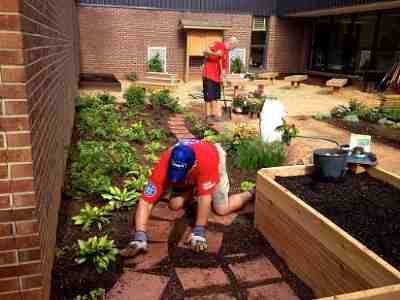
How to Protect Your Child from Poisonous Pollution
Careless industrialization and indisciplined lifestyles are responsible for pollution-related diseases and deaths.
By Rakesh Raman
In the current phase of neo-industrialization, where the world is running faster than you think to embrace an economic model driven by hyper mechanization, people are ignoring their most formidable enemy that is constantly chasing them.
Enemy? Yes, enemy. And it’s pollution – the most dangerous foe of humans in the modern world. You must know that pollution is claiming over 7 million lives every year while the number of pollution-linked deaths are increasing at a threatening pace. Careless industrialization and indisciplined lifestyles are responsible for pollution-related diseases and deaths.
Today, your every step toward industrialization is bringing this enemy closer to you and it’s ready to devour you mercilessly. Governments world over are finding it difficult to save adults from the cruel clutches of this invisible monster. But can we save our children? It’s difficult, but we can – and we must – try to protect the healths and lives of children from pollution.
Pollution is equally harmful to children in all parts of the world. However, children in India are particularly vulnerable because India is among the most polluted countries in the world.
In a list of 178 countries, India’s Environmental Performance Index (EPI) of 2014 stands at a deplorable rank of 155. Worse, the air quality rank of India is 174.
[ Also Read: How Pollution Makes Delhi a Poisonous Gas Chamber ]
Moreover, according to the World Health Organization (WHO), 13 of the 20 most-polluted cities in the world are in India. And India’s capital New Delhi is the world’s most polluted city. Air pollution is already responsible for over 600,000 premature deaths in a year in India.
Harmful Effects of Pollution
Pollution has more damaging effects on the health of children because they are more susceptible to it and as victims of pollution they suffer for more number of years throughout their lives as compared to adults.
It’s not only the children who are facing health risks, but pollution is also showing its harmful effects on foetal growth. Doctors warn that air pollution is increasingly affecting pregnant mothers who would give birth to small-sized and weak babies whose mental growth will also get retarded besides regular health problems – such as asthma, lung ailments, and heart diseases – that they will continue to face during their lifetime.
[ Also Read: How to Deal with Vehicular Pollution in Delhi ]
Referring to research by Columbia University scientists, Environmental Health News has reported that New York City children exposed in the womb to high levels of pollutants in vehicle exhaust had a five times higher risk of attention problems at age 9.
The study adds to earlier evidence that mothers’ exposures to polycyclic aromatic hydrocarbons (PAHs), which are emitted by the burning of fossil fuels and other organic materials, are linked to children’s behavioral problems associated with Attention Deficit Hyperactivity Disorder (ADHD).
[ Also Read: Toxic Air in Delhi Rings Death Knell for Locals ]
Further, a recent study from the U.S. National Center for Biotechnology Information discussed the detrimental effects of air pollution on children’s brain.
The study reveals that around the world, several metropolitan areas now exceed the standards for air pollutants. Consequently, millions of children are at risk or are already showing adverse short and long-term health outcomes, which include some of the most detrimental effects on brain development. In many cases, children lose their ability to think.
Now it is a fact that air pollution has many negative health effects on the general population, especially children and the elderly. A new study concluded that there is a significant association between traffic-related pollution and the development of asthma exacerbations and respiratory infections in children born to atopic parents and in those suffering from recurrent wheezing or asthma.
These findings suggest that environmental control may be crucial for respiratory health in children with underlying respiratory disease.
Health experts warn that outdoor air pollution is one of the leading contributors to adverse respiratory health outcomes in urban areas around the world.
They say children are highly sensitive to the adverse effects of air pollution due to their rapidly growing lungs, incomplete immune and metabolic functions, patterns of ventilation and high levels of outdoor activity.
Deadly India
These studies related to the health hazards of pollution on children are mostly done in developed parts of the world. As India is an underdeveloped country, the Indian governments, school teachers, and parents lack awareness about the harmful effects of pollution on children. That’s why they are not taking any steps to protect children from the polluted air.
[ Also Read: Mobile App to Help You Escape Deadly Air Pollution in India ]
For example, as pollution is spreading like poison in every corner of Delhi, Greenpeace India, an environment protection organization, warns that its fatal effect is now targeting children.
Greenpeace says that “Delhi has more than 3.5 million school-going children in the 6-14 year age group; all of whom are subjected to heavy doses of pollution while at school and otherwise.”
In a shocking observation, according to Greenpeace India, air pollution levels monitored in 5 schools across the city were found to be several times the safety limits.
With the help of online signatures that Greenpeace is collecting on a petition, it urges the Delhi government to protect children from toxic air. The petition asks Satyender Jain, the Health Minister for Delhi, to issue a health advisory to protect Delhi’s children on highly polluted days.
The effects of pollution are equally harmful for children and adults in other parts of India, as the entire country is a kind of poisonous gas chamber.
Role of Parents
While most parents don’t have time for their children, school teachers are ignorant, and governments in India are careless, who will save these innocent lives?
The entire onus is on parents to save their kids from poisonous air. So, what should parents do? Parents should monitor the Air Quality Index every day and if it is not safe, they should not send their children to schools, provided they are taking adequate steps to keep the indoor air of their homes clean. Similarly, homeschooling with custom syllabus is the best option for children to avoid the detrimental effects of pollution.
[ Join: Environment Protection Movement of India ]
As the air is always polluted in most parts of India, parents should ask their children to wear anti-pollution masks. Moreover, parents should know that dust pollution is among the worst forms of pollution. They should not allow construction in schools where their children are studying. And if construction continues in schools, they should not send their children to schools.
With such steps, parents can save their children from the harmful effects of pollution. Parents should understand that education is important for their children, but not at the cost of their health. An unhealthy child will never be able to use the education to improve their quality of life. And that’s the truth. Are parents listening?
By Rakesh Raman, the managing editor of RMN Company
You also can read: More Articles by the RMN Editor, Rakesh Raman
This article is part of our editorial initiative called REAL VOTER that covers political developments in India. Click here to visit REAL VOTER.
Photo courtesy: Wikimedia Commons




